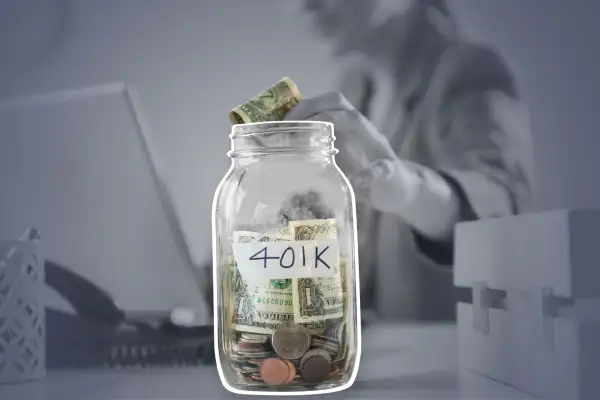You Don't Need to Be Rich to Become a 401(k) 'Super Saver'

People who max out their 401(k) contributions annually are just like us.
They have student loans, and their relationships with money are influenced by the financial struggles they've seen in their families and others. And many of them are not high earners — offering proof that it's possible to save a significant amount for retirement no matter how much money you make.
In a new study released Wednesday, the financial investment and insurance company Principal polled over 1,400 retirement plan participants in July between the ages of 18 and 56, all of whom are so-called “super savers.” That means they max out their retirement contributions or contribute at least 15% of their earnings to their plans every year.
Among the Principal's group of "super savers," over half make less than $100,000 per year, and 15% earn less than $35,000. How do they manage to save so much? Here’s what we know about their habits.
Workers maxing out 401(k) contributions
There’s one thing that most "super savers" in the Principal study avoid: risk. Sixty-seven percent of the savers polled have not experimented with cryptocurrency, meme stocks and other non-traditional investments. Even among Gen Z savers, a group known for eschewing traditional personal finance rules and embracing cryptocurrency and others trends, the poll found only 22% had invested in crypto or meme stocks in the past year.
The poll found that those making less than $100,000 who manage to contribute at least 15% to their 401(k)s annually have many of the same habits as higher-earning retirement savers.
These savers are serious about investing. More than half (54%) of the people polled began putting aside even more for retirement during the pandemic. Many Americans were doing that, in fact. Average contribution rates at Fidelity recently reached 13.9% including company match payments, an all-time high. And there are now more 401(k) millionaires than ever before.
Perhaps surprisingly, 14% of Principal's "super savers" have student loan debt. Nationally, 15% of adults with at least a high school degree have student loan debt, according to the U.S. Census Bureau. While paying off student debt and saving for retirement at the same time can seem daunting, experts say there’s no reason to wait until you’re done paying off debt to start saving for the future.
As for what motivates savers to max out their 401(k) contributions, those polled say they're influenced to save by their parents and by watching others struggle financially.
How to start saving for retirement
Many experts consider the most important step to building a comfortable retirement is simply to start saving something — even a tiny amount.
“Start with 50 cents. Start with $1,” Rob Williams, vice president of financial planning and retirement income at Charles Schwab, told Money. “Create the habit and the discipline to start small and then that will snowball.”
Getting into the habit of saving in the first place is one of the surest ways to eventually hit your retirement goals. Advisors recommend you put aside 15% of your earnings annually in order to have ten times your salary saved by the time you retire. If you’re not able to contribute 15% yet, don’t worry. Just try to increase it by 1% each year until you hit the magic number.
You may not reach the maximum contribution limits for years, but there are ways to catch up. The IRS allows individuals to invest $19,500 in their 401(k) for 2021, with an additional $6,500 in catch-up contributions for those nearing retirement age.
It may help to keep in mind that you're not alone if you're having a hard time when it comes to saving for retirement. One out of every four Americans doesn’t have any money at all put aside for retirement.
Just remember that the earlier you start saving, the easier it is to build a nest egg. Missing out on saving for a year early on can cost you tens of thousands of dollars in compound interest by the time you retire.
More from Money:
How to Inflation-Proof Your Retirement as Prices Continue to Rise
It Just Got Easier to Mine Bitcoin at Home
What's the Best Country for Retirement? The U.S. Isn't Even in the Top 10
